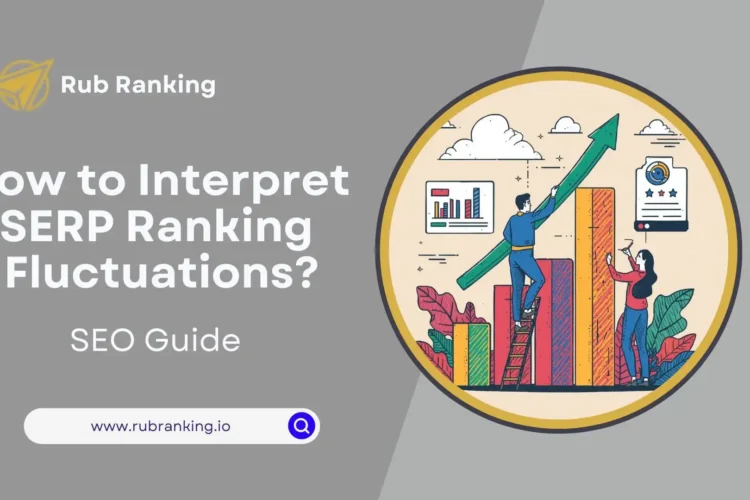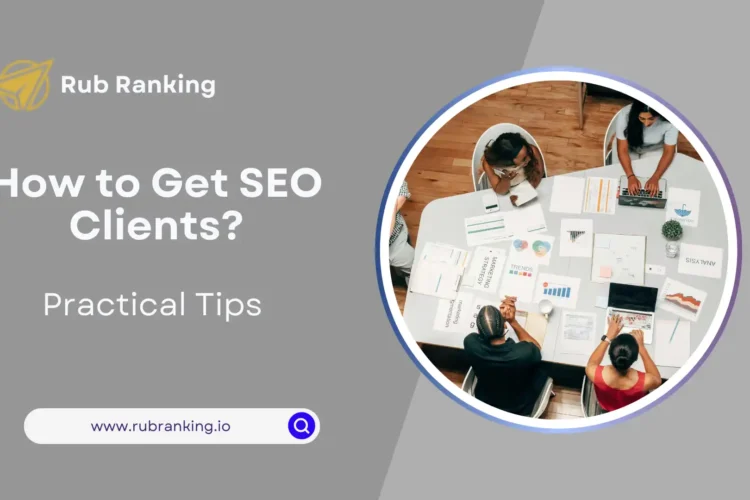
One day you are on page one. Next, you are buried. Traffic is down, sales are quiet and panic sets in.
If you agree with this, you are not the only person. It is not unusual for people to experience a ranking drop almost every time. And yeah, they are a gut punch especially when you do not know why.
Most of the time, it is not one big mistake. It is a bunch of small ones piling up. Or maybe Google just changed the rules again because they do that a lot.
This guide is going to reveal the most frequently occurring reasons why your rankings might have fallen and the ways in which you can repair them. In case you are a blogger, a marketer, or a business owner, this guide is going to be useful to find out what the problem is and then solve it.
Let’s dive in.
Reason Why Google Ranking Drops?
Here are some common reason for drop ranking :
1. Google Algorithm Updates
Let’s get the big one out of the way first.
Google rolls out updates constantly. Some are small. Others like core updates can shake up the entire search results overnight.
If your rankings tanked around the same time as a known update, that might be the reason.
What to do:
- Check for updates on sites like Search Engine Roundtable or Google’s Search Status Dashboard.
- Look at your traffic in Google Search Console. Did it drop across multiple pages or keywords?
- Possibly you should give it a couple of days before starting to get anxious. Hold on for a bit and things will get back to normal on their own.
- Should your content be unhelpful, unreliable, or not very pertinent, then you should refactor it.
2. Content Quality and Relevance
The reality is that Google wants quality.
If your content is thin, boring, or just outdated, Google might push you down. Especially if better stuff comes along.
You need to add details in your blogs because a 500-word blog post from 2020 is not gonna cut it anymore.
Signs your content might be the problem:
- It has not been updated in 1–2 years.
- It does not answer the searcher’s main question.
- It is missing real information like stats, quotes, or examples.
How to fix it
- Update old posts with new info, better headlines, and clearer answers.
- Add internal links to newer pages.
- Make sure your content is better than what is currently ranking.
3. Keyword Cannibalization
It sounds spooky.
The concept of keyword cannibalization is a single website where diverse pages are competing to be picked up in a search engine for a particular keyword. Yet, it turns out that instead of getting better, they work against each other and hence pull each other down.
Google gets confused. It does not know which page to rank. So it ranks none of them.
Example:
You have got three posts all trying to rank for “best coffee beans.” Google is like, “Which one is the real deal?”
So instead of ranking you at all, it picks someone else.
How to fix it:
- Use Google Search Console to see which pages rank for the same term.
- Merge or redirect overlapping content.
- Focus each page on a unique keyword or topic angle.
4. Broken Links and Technical SEO Issues
Broken pages and busted links tell Google, “Hey, this site is not well-maintained.” If users land on a dead-end or a slow page, they bounce. And Google notices.
Things that cause problem
- 404 errors (page not found)
- Broken images or media
- Slow site speed
- Mobile problems
Tools to help:
- Google Search Console (check the “Pages” section)
- GTmetrix or PageSpeed Insights
- Screaming Frog SEO Spider
How can you fix it?
- Fix or redirect broken links.
- Compress images.
- Make sure your site loads fast especially on mobile.
5. Losing Featured Snippets or Rich Results
If you used to rank in a featured snippet (you know, that box at the top), losing it can feel like a huge drop even if your ranking technically didn’t change.
Same goes for review stars, FAQs, and sitelinks.
Why you might lose them:
- Google changed how snippets work
- Your content is outdated or not clear
- Someone else structured their content better
How to fix
- Use schema markup (like FAQ or HowTo)
- Reformat content to answer questions directly
- Use simple lists, tables, or headers to stand out
6. Spammy Backlinks
Backlinks can lift your rankings or drop them.
If your site has shady links from spammy websites, Google might slap you with a penalty. Or just slowly drop your rankings.
This happens a lot when:
- You buy cheap backlinks
- You use link farms or private blog networks (PBNs)
- You get hit by negative SEO (yes, it is a thing)
How to check
- Use tools like Ahrefs or SEMrush to audit your backlinks.
- Look for links from sketchy sites or irrelevant pages.
What to do
- Disavow bad links in Google Search Console
- Focus on building real, natural links from trusted sites
7. Competitors Got Better
Sometimes, your content does not get worse, someone else just did it better.
If a new site publishes an awesome post, builds strong links, and gets attention Google may swap you out for them. It is nothing personal. Just competition.
What to do:
- Look at what is ranking now
- See what is different or better about their content
- Update your page to go deeper, be clearer, or provide more value
8. Manual Penalties
Yes, penalties again. This time, it is bigger.
You might have violated Google’s guidelines accidentally or not.
This is not about small issues. We are talking about fake links, hidden text, or cloaking content (showing one thing to users and another to Google).
How to Fix it:
If you have got a manual penalty, fix the issue and submit a reconsideration request. Be honest. They can tell when you are BS-ing.
9. Google Trends
What people search for changes. If fewer people are looking up your keywords, your traffic might drop even if your rankings are solid.
That is not an SEO fail, it is just shifting interest.
What to do:
Check Google Trends. Spot rising topics in your niche. Adjust your content strategy based on what people are searching.
10. You Are Tracking Rankings Incorrectly
Maybe your rankings did not drop, you were just not looking at the right data.
Different tools show different results. Maybe you were ranking for the wrong keywords. Or your rank dropped on mobile but not desktop.
Quick Solution:
Use consistent tools. Track keywords that matter. And do not panic over a 1–2 position drop, it happens.
11. Hackers
If your site has been hacked, Google will spot it quickly. You might get flagged with a security warning or even deindexed.
Visitors will bounce, and trust will tank.
Watch for:
- Weird redirects
- Spammy content you didn’t write
- Warnings in Search Console
Lock things down with SSL, good passwords, and a reliable host.
12. Poor Quality Content Strategy
If you are publishing blog after blog with no real plan, that is not a strategy. Posting five articles a week on random stuff would not help you rank.
Build smarter content by:
- Targeting specific keywords
- Writing for your audience, not just search engines
- Grouping related topics (content clusters)
Less is more if it is better.
13. Website Migration & Ranking Drop
Changed your domain, switched platforms or moved to HTTPS? Migrations can be messy. If not handled properly, rankings crash.
Migration checklist:
- Set up 301 redirects
- Update internal links
- Resubmit sitemap
- Monitor Search Console closely
Hire someone who knows how to do their work. Migration is not a DIY thing.
14. Neglected SEO Efforts
SEO is not “set it and forget it.” If you have not updated your site, blog, or backlinks in a year well, that is part of the problem.
Your competitors are active and algorithms keep changing. Google only rewards your efforts and if you stop putting effort you will start falling behind.
What to do:
Set a monthly SEO checklist, refresh old content, add new blogs and keep link building to stay in the game.
FAQs – Google Rankings
1- How long does it take to recover if the ranking drops?
It depends. Minor drops can bounce back in days. Bigger ones might take weeks or months especially if a full content update or link cleanup is needed.
2- Will deleting bad backlinks fix my rankings?
It can help, but you should also build new, quality backlinks to rebuild trust.
3- Should I update all my old content at once?
Start with your top-performing or traffic-losing pages first. Do not try to fix everything overnight.
4- Is keyword stuffing still bad in 2025?
Yes. It is still a bad move. Google is smarter now. Write for humans.
Final Words – Google Rankings
Hearing that your Google ranking has gone down is not a great thing, but fortunately, it is reversible. The main goal is to be relaxed, find out the symptoms and be quick-witted to solve the problem.
Survey your content, backlinks, mobile website setup, and user experience. Do not chase tricks. Just focus on creating helpful stuff people actually want to read.
Google is always changing but if you build with users in mind, you will stay ahead of the game.
Read More : How Rub Ranking Tracks Google Positions Instantly? Here’s How
Read More : How to Check Google Rankings for Free? Top Tools & Tips


